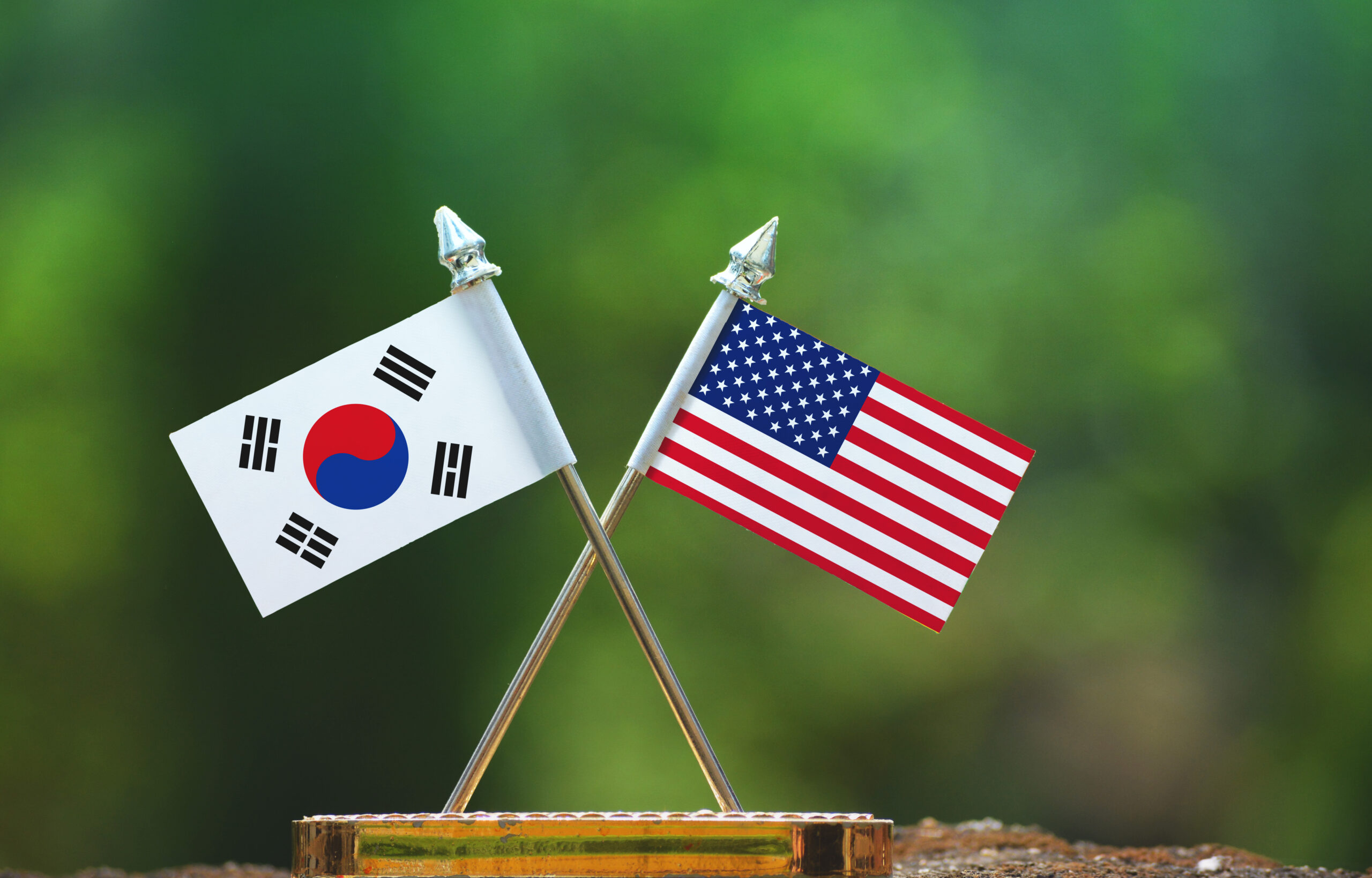
U.S.–ROK Cooperation Can Shape the Nuclear Energy Market and Strengthen Nonproliferation
The relationship between the United States and South Korea has become a strategic necessity for sustaining leadership in the nuclear energy market and preserving the integrity of the global nonproliferation regime.
Nuclear geopolitics has been in crisis. The Russia-Ukraine conflict shows that nuclear war is still possible—even in the twenty-first century. The nonproliferation regime faces strong challenges, including proliferation in North Korea and an arms race driven by the nuclear modernization of China and Russia, which uses new technologies such as artificial intelligence and hypersonic missiles. At the same time, the United States has lost its leadership in defending the nonproliferation regime as well as its dominance in the nuclear energy market.
Losing U.S. leadership in the nuclear energy market is not only a loss of U.S. nuclear energy hegemony—it also threatens the strength of the global nonproliferation regime. China and Russia now dominate the world’s nuclear energy markets. Russia has become the world’s number one nuclear reactor exporter, and China continues to build nuclear power plants at home and overseas.
Unlike the commercial markets of food and cars, the nuclear energy market is a security-related market due to the potential threats of nuclear proliferation. The United States has strongly led 123 agreements with partner countries to defend the nonproliferation regime and promote a safer world. However, China- and Russia-led nuclear market expansion does not guarantee a strong, well-regulated nonproliferation regime. Rather, China and Russia are potential challengers to the global nonproliferation regime.
South Korea as a Responsible Nuclear Partner
The Republic of Korea (ROK) has been a model example of peaceful nuclear energy use. Despite the long-standing security challenges posed by North Korea’s nuclear threats, the ROK has not developed nuclear weapons. While recent public debate in South Korea over nuclear weapons has received global attention, many nuclear experts do not expect South Korea to actually develop nuclear weapons. South Korea’s aspiration to expand nuclear power exports far outweighs the potential benefits of nuclear weapons development.
The Barakah nuclear power plant in the United Arab Emirates, built by the Korea Electric Power Corporation (KEPCO), showed the Republic of Korea’s capability as a nuclear power exporter. However, this achievement raised concerns in the U.S. nuclear industry about a future rivalry. Similarly, during Saudi Arabia’s nuclear power plant bidding process during the first Trump administration, the U.S. government and the nuclear industry worried about South Korea’s ambitions as a nuclear supplier. At the time, a lack of communication, as well as miscommunication between the United States and the ROK, created friction around this issue. If the two became rivals rather than partners in the nuclear energy market, the costs would be high and could include a global nuclear arms race and the risk of nuclear war in the near future.
Recently, however, the United States and the ROK have agreed to cooperate as partners in the nuclear energy market. Given the dominance of China and Russia in the nuclear energy market, a strong partnership between the United States and the ROK is not optional but essential. This cooperation is necessary not only for the national interests of both countries but also for maintaining a safer world. But, the United States and the ROK cannot control their commercial nuclear industries the way China and Russia do. China and Russia use state financial support as a tool to win nuclear energy projects globally, which is an approach that is difficult for the United States and the ROK to replicate.
Preserving the Nonproliferation Regime through a U.S.-ROK Partnership
A loss of U.S. leadership in the global nuclear energy market could lead to chaos, a renewed nuclear arms race, and the breakdown of the nonproliferation regime. Although the Nuclear Nonproliferation Treaty (NPT) regime is weaker today and disagreements have grown between Nuclear Weapon States (NWS) and Non-Nuclear Weapon States (NNSW)—especially over initiatives like the Treaty on Prohibition Nuclear Weapons (TPNW) and Nuclear Weapon Free Zones (NWFZ)—the global nonproliferation regime under U.S. leadership has been successful in minimizing the number of nuclear weapon states over the past decades.
Without a global nonproliferation regime, many countries will try to develop their own nuclear weapons, and the world could face nuclear war sooner than expected. Russia’s attacks on Ukraine’s nuclear power plants and North Korea’s continued nuclear weapons testing are clear examples of what can happen when the nonproliferation regime is undermined. In this context, the United States is lucky to have the Republic of Korea as a strong partner in the global nuclear energy market. The partnership was made possible because the United States has unconditionally supported the ROK in becoming an advanced nuclear energy nation under the framework of nonproliferation.
Just as the nation-building of the ROK is considered one of the best achievements of U.S. foreign policy, the ROK’s advancement in nuclear energy is one of the best outcomes of U.S. leadership in supporting peaceful nuclear development. Now is the time for the United States to “marry” its best student, the ROK, and become one team to defend the global nonproliferation regime and maintain U.S. leadership in the nuclear energy market. Experts, government officials, and industry leaders from both countries must be ready to act together. This “marriage” will lead the global nonproliferation regime, support peaceful nuclear energy development, enhance export competitiveness, and include future areas of cooperation such as Small Modular Reactors (SMRs). Only through this partnership can the United States and the ROK compete in the Russia and China-dominated nuclear energy market and defend the global nonproliferation regime.
Professor Youngjun Kim is the Dean of Academic Affairs of the National Security College at Korea National Defense University.
Image: Aritra Deb/Shutterstock